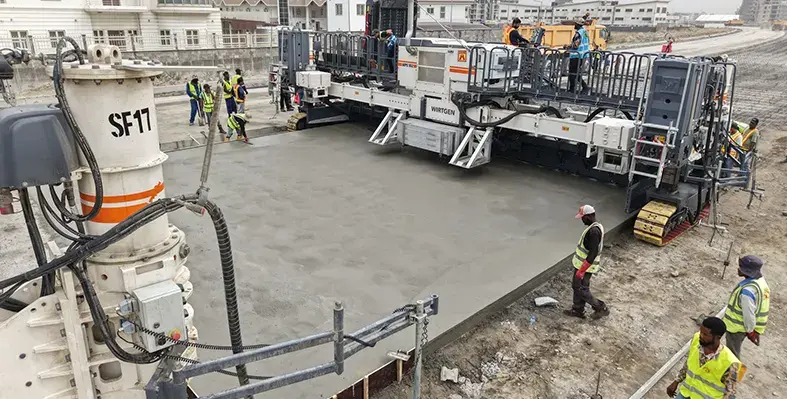As Nigeria’s Hitech Construction Company Limited nears completion on the first segment of the Lagos-Calabar Coastal Highway, the project has secured a landmark financing package involving commercial and other lenders that bodes well for future infrastructure developments
Deutsche Bank led a US$747mn syndicated loan to fund the first section of the project, which covers a 47-km stretch from Victoria Island to Eleko Village in Lagos.
A statement by Nigeria’s Ministry of Finance said it marks the largest syndicated loan ever arranged for a roads project in the country and reflects a “strong signal of global investor confidence” in the nation’s reform trajectory and infrastructure pipeline.
The Lagos-Calabar Coastal Highway is a flagship project under Nigeria’s Renewed Hope Infrastructure Development Agenda.
“This deal reflects the success of our macroeconomic reforms and the return of international capital to support Nigeria’s development,” said Wale Edun, Minister of Finance and Coordinating Minister of the Economy.
“We are focused on financing infrastructure in ways that are sustainable, transparent and catalytic — and this transaction is a model of that vision.”
Deutsche Bank acted as the transaction’s global coordinator, lead arranger and bookrunner and participated in the syndicate, alongside other regional and international lenders.
The syndicate includes support from development finance institutions, export credit agencies and international commercial banks, such as First Abu Dhabi Bank, the African Export-Import Bank (Afrexim), the Abu Dhabi Exports Office (ADEX), ECOWAS Bank for Investment and Development, Nexent Bank N.V. (formerly known as Credit Europe Bank N.V.) and Zenith Bank (through its UK, Paris and Nigeria offices).
The Islamic Corporation for the Insurance of Investment and Export Credit (ICIEC), a part of the Islamic Development Bank Group, provided partial political and commercial risk insurance.
The project is structured as an EPC+F (Engineering, Procurement, Construction + Financing) contract awarded to Hitech Construction, one of Nigeria’s leading infrastructure firms.
The highway, which is being built using Continuously Reinforced Concrete Pavement (CRCP), also reflects a commitment to longer-term resilience and efficiency, engineered for a minimum lifespan of 50 years with minimal maintenance.
Construction of Phase 1 Section 1 is already over 70% complete, said Dany Abboud, Hitech Construction’s managing director.
“We are proud to deliver this historic project,” he said. “We are showing that Nigerian engineering — backed by structured international finance— can meet global standards. The use of CRCP technology ensures unmatched durability and cost-efficiency.”
The highway will serve as a vital trade and logistics corridor for Nigeria, enhancing regional integration, tourism, reducing transport costs and creating jobs.
A tolling strategy is currently being finalised to ensure the project’s operational and financial sustainability, while additional funding for subsequent phases is now being structured, reportedly with strong interest from regional and international investors, according to the Ministry of Finance.
“This transaction is a vote of confidence in Nigeria’s economic reform agenda,” said David Umahi, Nigeria’s Minister of Works.
“The Lagos-Calabar Highway is a strategic national asset, and this financing sets a strong precedent for future public-private infrastructure partnerships.”
Read more:
African Development Bank targets Nigeria's infrastructure
Nigeria begins work on Cross Rivers agro-industrial zone














